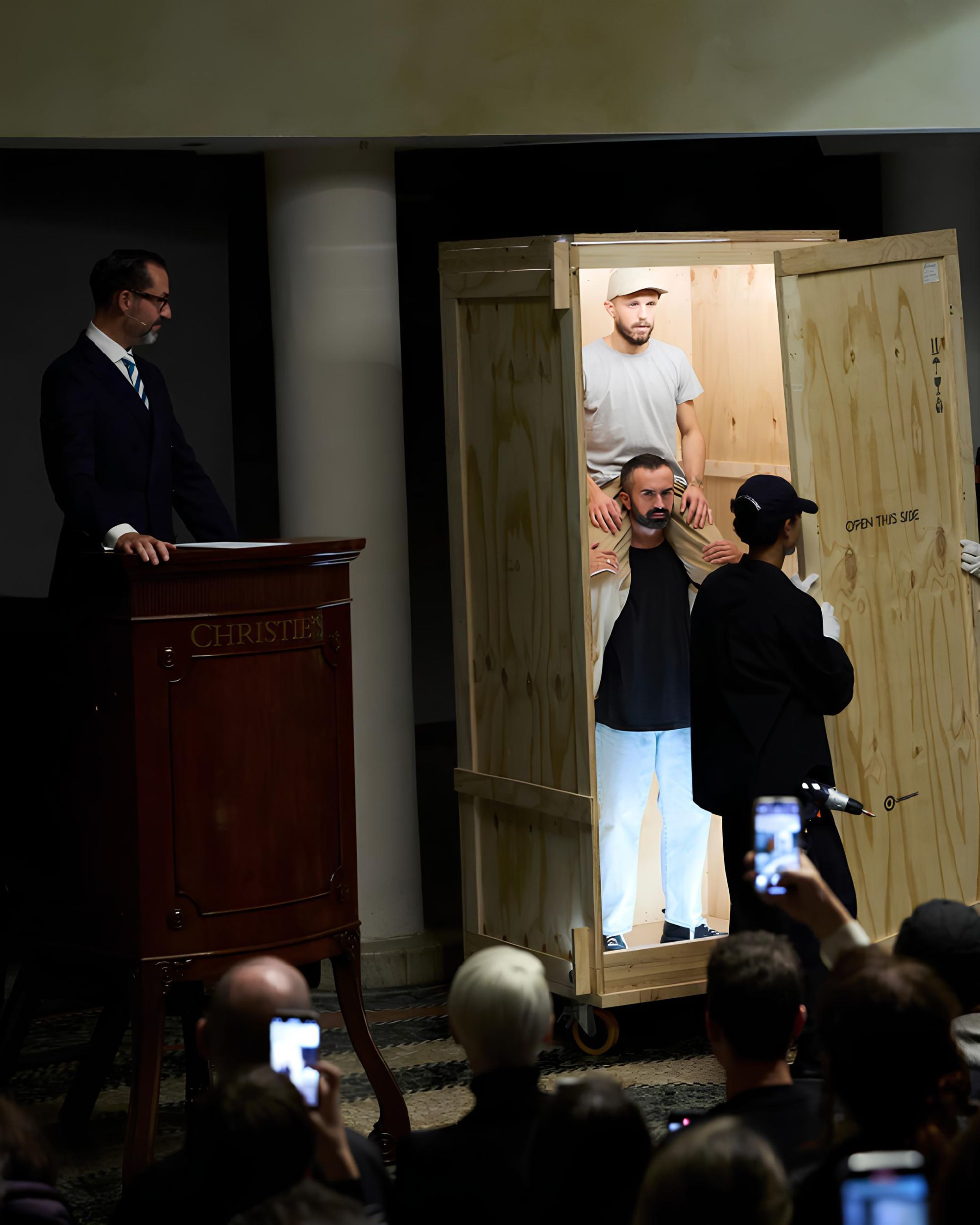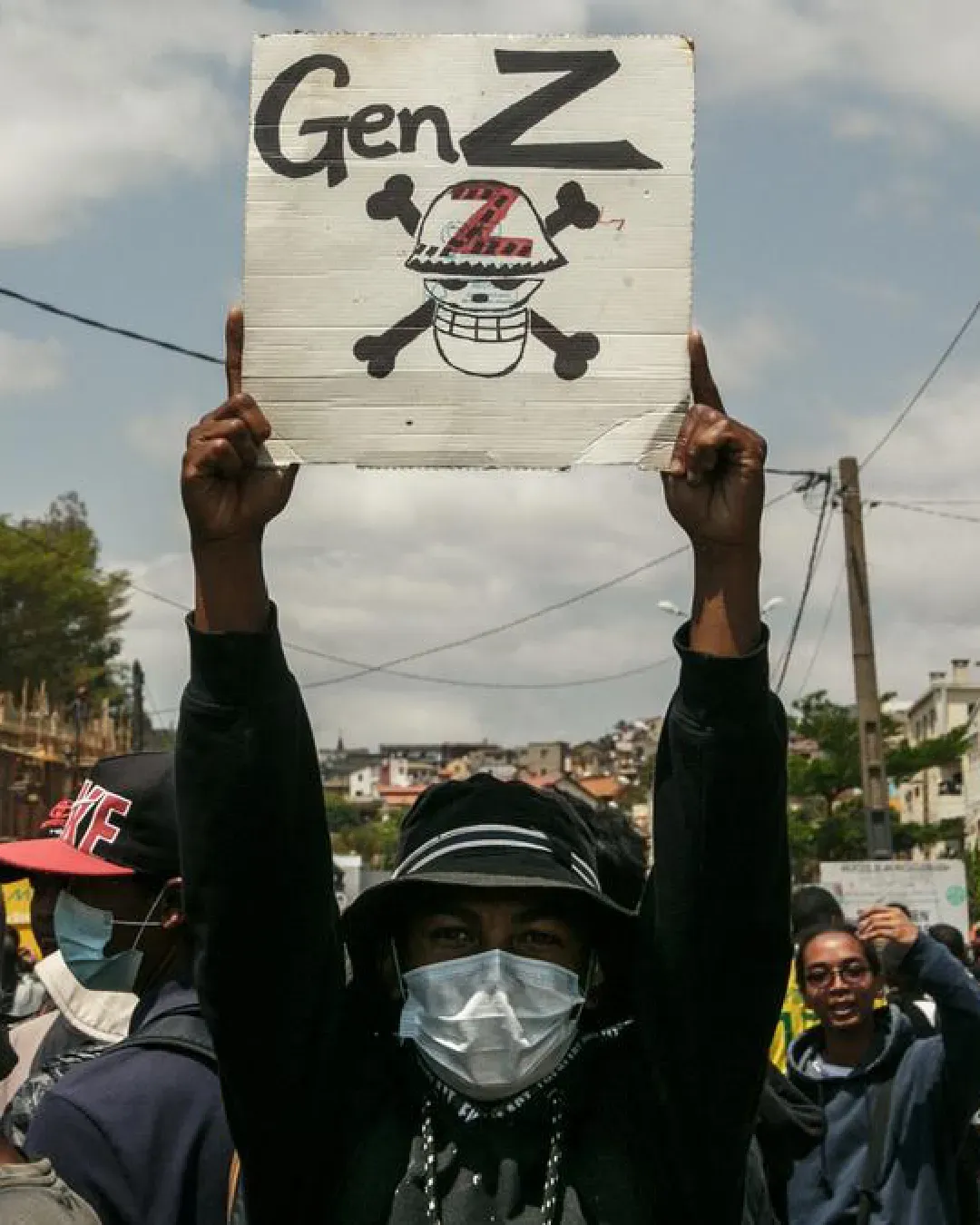
All that remains of Italian politics is a meme Il Pagante, Rummo pasta and the problem of fandom
Anyone who finds themselves scrolling through TikTok and, albeit ashamed, defines themselves as a fan of a certain category of trivial and politically incorrect memes, has likely been inundated with snippets from episodes of La Zanzara, the controversial Radio 24 program hosted by Giuseppe Cruciani and David Parenzo, featuring appearances from cultural icons like Il Brasiliano and Tony da Milano. Il Pagante has capitalized on the virality of this phenomenon to launch its new song featuring VillaBanks, appropriately titled Spingere in honor of the rapper - with a not-too-distant past in the adult industry. The project revolves around the launch of a paradoxical political party with electoral proposals centered around sex, drugs, and gambling. The video features Cruciani and Parenzo interviewing the founders of the "Partito della Gaina", Wad Caporosso, while the dance floor transforms into the setting for the campaign headquarters, giving life to the inevitable scandals of new political promises. To represent populism in its most absurd forms, the narrative starts from a radio program that reaches an audience not necessarily conservative but certainly less sensitive to progressive/woke rhetoric. The song is expected to become a catchy, summery hit destined for the charts (if not for our collective memory), but it reveals a keen insight into the dynamics shaping contemporary politics and how we perceive it.
Last October, Beppe Sala decided to take part in the launch video of the new album by Club Dogo, portraying Milan as a modest Gotham City, with Claudio Santamaria and the Mayor of Milan as modern backers of our microphone and synth superheroes. Upon its release, citizens wondered on various social channels whether the mayor of the Lombard capital had become a bit too distracted during filming, losing control of a city grappling with crime, inflation, strikes, and unemployment. Others questioned whether the initiative was actually a way for Sala to regain support, especially now that Chiara Ferragni and Fedez have lost their grip on their 32 million total followers, amidst panettone and missed philanthropy. Following an American model where there is no longer a distinction between Donald Trump and Taylor Swift, nor between the mechanisms that drive their respective fandoms, politics and entertainment are becoming increasingly intertwined.
A few days ago, Aja Romano recounted in an article on Vox the complex phenomenon of political fandoms, starting from how right-wing voters are generically labeled as "Trump fans," as if a Trump supporter attending a political rally and a member of the Beyhive buying tickets to Coachella were the same thing. Trump's political success itself coincides with the rise of fandom, a celebratory model that emerged in the new millennium. The term "stan," sometimes collectively referred to as "standom," is an ironic term taken from Eminem's 2000 song Stan, about a fan/stalker whose obsession goes too far. The concept of "stan" has been heavily shaped by Twitter's ability to allow fans to follow their idols in real-time, communicate with other fans, and even talk directly to the characters they support. It's hard to think that during an era where celebrities and pop stars interact more directly with their fans, Trump successfully presented himself not as a politician but as a celebrity who deigned to do politics only to satisfy his audience. His opponents faced the opposite fate: the shift is not from celebrity to political figure, but from political figure to celebrity, to the extent that in some contexts, the gap between the two figures disappears entirely. Pop and politics find themselves united in a single individual, forced to undergo the same veneration as a K-pop star if they want to successfully enter a dynamic where recognition and adherence pass through image and its fetishization.
If postmodernity has fueled our inability to identify with a political ideology, social media has facilitated the identification mechanism that connects us to individual characters, fueling toxicity, extremism, and delusional thinking. The rapid consumption of content feeds fanaticism and misinformation but also adds a dangerous emotional component. As Byung-Chul Han writes in Psychopolitics, "neoliberal psychopolitics seizes emotion to influence actions on a pre-reflexive level." And so, Selena Gomez fans end up wishing death upon Hailey Bieber in honor of her teenage relationship with Justin, while Matteo Salvini's haters risk bankrupting Rummo after the premier's visit to the Benevento pasta factory. Memes blend with death threats, politicians make films and music videos, the humorous merges with the tragic in a mix that Foucault would define as grotesque and Marx as liberal. Il Pagante, despite being intentionally absurd, may have provided a more profound reflection than many artists who want to express themselves politically at any cost.













































